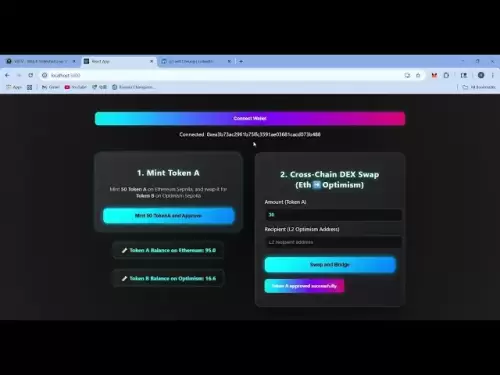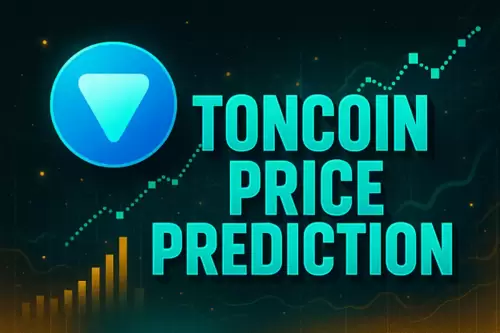 |
|
 |
|
 |
|
 |
|
 |
|
 |
|
 |
|
 |
|
 |
|
 |
|
 |
|
 |
|
 |
|
 |
|
 |
|
Cryptocurrency News Articles
The Northern Mariana Islands Has Passed Legislation Allowing Its Island of Tinian to Issue a Government-Backed Stablecoin
May 16, 2025 at 05:15 pm
On May 15, lawmakers in the Northern Mariana Islands House voted 14-2 to override Governor Arnold Palacios' earlier veto of the bill.

A U.S. territory in the Pacific has passed legislation allowing one of its islands to issue a government-backed stablecoin.
Lawmakers in the Northern Mariana Islands House voted 14-2 on May 15 to override Governor Arnold Palacios’ earlier veto of the bill.
The House vote follows a May 9 decision by the territory’s Senate, which also overturned the veto with a 7-1 majority. The bill had originally passed unanimously through the Tinian delegation in March and was sent to the governor on March 12.
The legislation, no.25-105, authorizes the Municipality of Tinian and Aguiguan to issue a “Tinian Stable Token,” formally called the Marianas US Dollar (MUSD), backed by U.S. dollars and Treasury bills held in reserve by the local treasury.
It also enables Tinian’s local government to issue licenses to internet casinos, tying the stablecoin rollout to a broader economic strategy aimed at revitalising the island’s struggling economy.
The local government has partnered with Marianas Rai Corporation as its exclusive technology provider, with plans to deploy MUSD on the eCash blockchain, a fork of Bitcoin Cash ABC.
Bill supporters say the initiative could bring much-needed revenue to Tinian without placing a financial burden on the government.
"This bill could bring billions of dollars of investment and tax revenue from the cryptocurrency sector to Tinian," said Marianas Rai Corp. co-founder Vin Armani.
Clyde Norita, another executive at the firm, described the effort as a way to salvage a “dying” local economy, saying the new digital industry could generate income without affecting the island's culture, environment, or immigration status.
Among lawmakers, Republican Representative Patrick San Nicolas, a member of the Tinian delegation, supported the bill as a way to break dependence on tourism and federal subsidies.
“We need this legislation to unlock our potential,” he said during floor discussions, framing it as a path to self-sustaining revenue.
Among the critics was Governor Palacios, who vetoed it over what he described as “several legal issues” and a lack of enforcement safeguards, and Independent Representative Marissa Flores, who criticised the bill’s ties to online casinos.
“Every time we’re desperate, it always seems that we come back to casinos,” she said, and warned against making decisions out of fear or economic pressure, ahead of the vote.
If launched as planned later this year, MUSD would become the first government-backed stablecoin issued by any U.S. public entity.
It pulls ahead of the state of Wyoming, which is working toward a similar goal by July 2025.
Wyoming passed the Wyoming Stable Token Act in March 2023 and has been developing its own stablecoin backed by cash and government securities. The state's Stable Token Commission is currently conducting cross-chain tests on platforms like Ethereum, Solana, and Avalanche, ahead of the expected launch window.
At the national level, progress on stablecoin regulations has stalled since last year due to political friction. Two major federal bills, the GENIUS Act and the STABLE Act, have lost Democratic backing following concerns over former President Donald Trump’s growing involvement in the crypto space.
Disclaimer:info@kdj.com
The information provided is not trading advice. kdj.com does not assume any responsibility for any investments made based on the information provided in this article. Cryptocurrencies are highly volatile and it is highly recommended that you invest with caution after thorough research!
If you believe that the content used on this website infringes your copyright, please contact us immediately (info@kdj.com) and we will delete it promptly.





























































